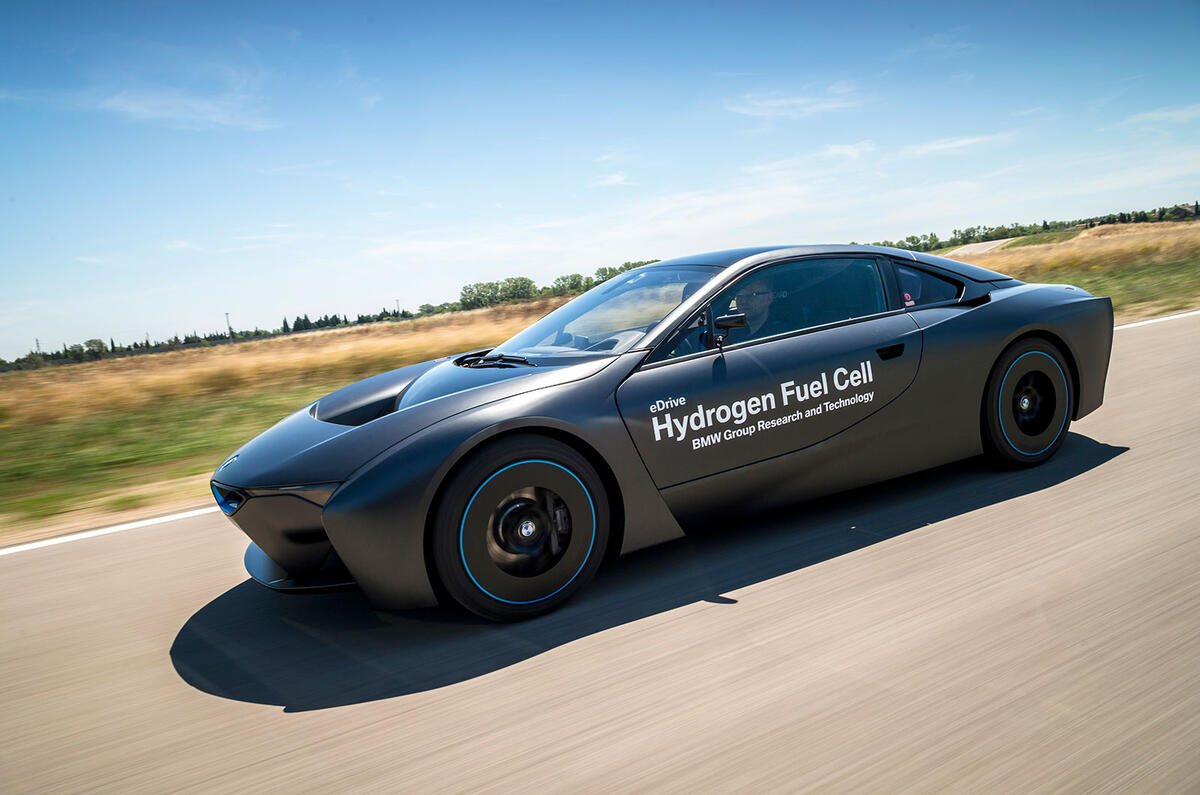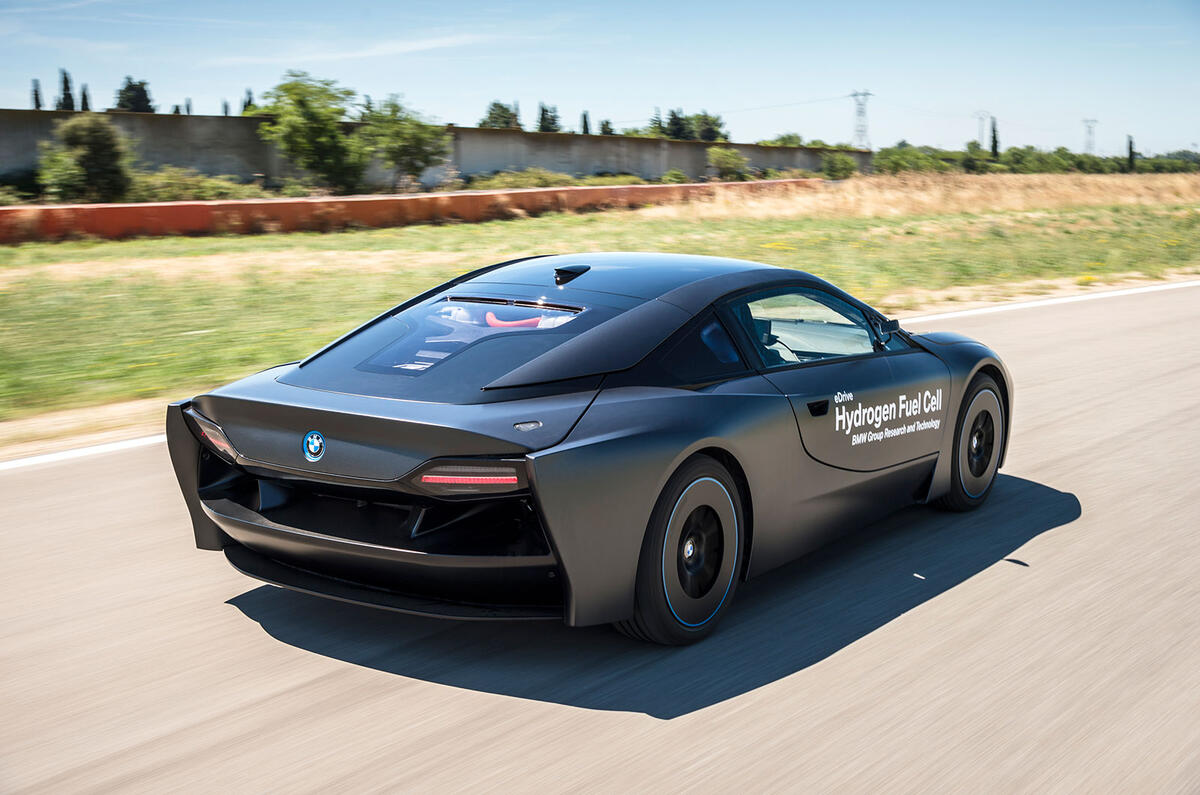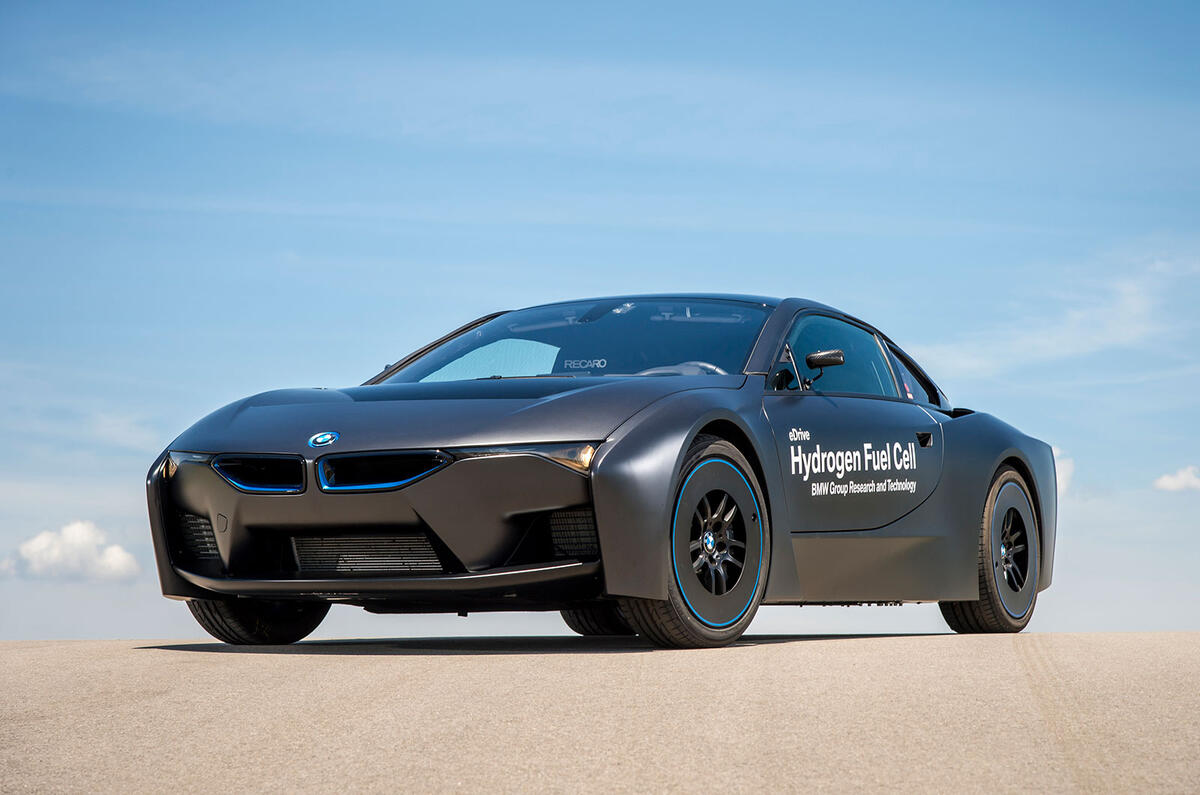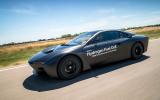BMW has lifted the veil of secrecy on one of its most advanced research vehicles to date.
The futuristic-looking prototype, pictured here in a series of official photographs for the first time, has been used as a rolling test bed for the German company’s hydrogen fuel cell technology, which is planned to head into large-scale production by 2020, according to the head of BMW’s vast research and development operations, Klaus Fröhlich.
Based around the contemporary new i8, the sleek two-door coupé relies on carbonfibre construction to keep its weight down and also features an aerodynamic package honed at BMW’s wind tunnel in Munich.
Stylistically, the latest in a long line of research vehicles to be made public by BMW hints at the look to be adopted by future production models from BMW’s fledgling i brand, with a new angular interpretation of the traditional kidney grille and fully integrated slimline headlights.
Large air ducts sited up front are used to feed air to a series of front-mounted radiators, while the layered surfacing treatment of the i8 has given way to a more simplistic exterior design, especially at the rear.
BMW is holding back on technical details, although Autocar can confirm that the BMW research vehicle, which was constructed back in 2012 and remains unnamed, sites its fuel stack at the rear in the position usually taken up by the i8’s compact turbocharged 1.5-litre three-cylinder petrol engine.
Energy for the fuel stack is provided by cryogenically stowed hydrogen contained in a cylindrical tank mounted down the centre line of the car’s platform and oxygen provided by cooling air. The fuel stack subsequently provides electricity to run a rear-mounted electric motor, with the only emissions being water.
Power is put at 242bhp – 115bhp less than the petrol-electric hybrid system used by the production i8. BMW also quotes a 0-62mph time of less than 6.0sec and top speed around of 124mph.
While used extensively in recent years, BMW says its hydrogen fuel cell prototype has recently been taken out of service. Having formed a joint venture with Toyota and accelerated plans to place a hydrogen fuel cell model into its production cars, the German car maker has now advanced its research to include a number of road-going 5 Series GT-based prototypes.
Unveiled this week, the latest prototypes feature the same fuel cell stack used by Toyota in its pioneering Toyota Mirai – the world’s first widespread commercially available hydrogen fuel cell car.
































Join the debate
Add your comment
cash loans no credit check
Payday loan is the short term loan and simple application process. You can apply online for payday loans. It is beneficial for you when you need money in emergency. It provides you loan for $500 or less. Payday has the short term policy.
BMW i8
xxxx